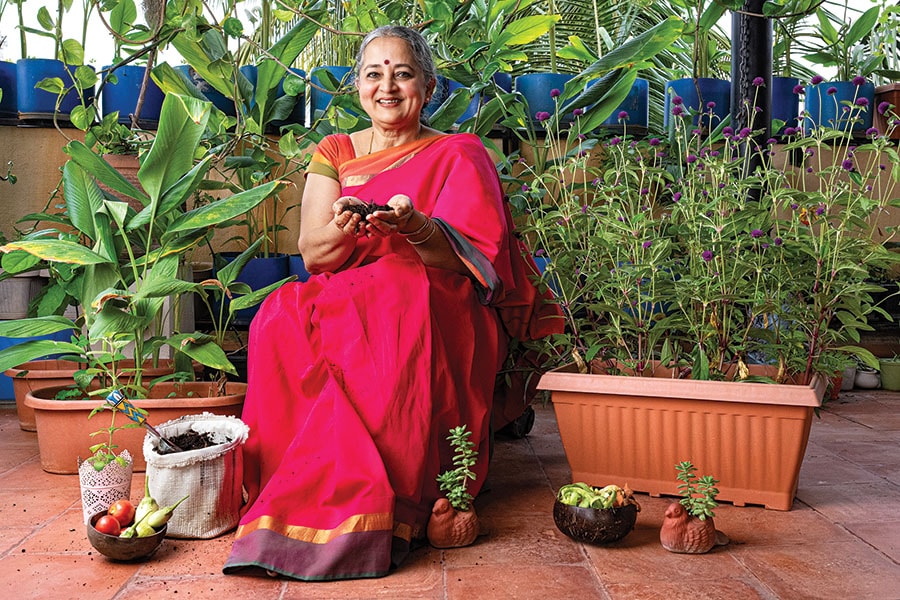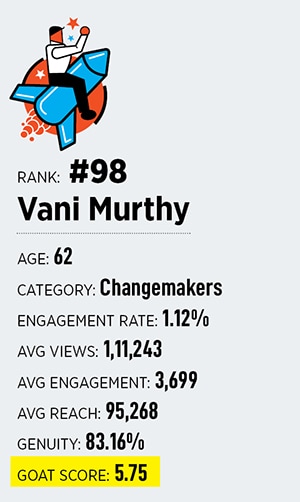
Vani Murthy: Building a sustainable, low-waste army
Vani Murthy, one of the founding members of the Solid Waste Management Roundtable, took to social media to share ways to reduce, recycle, and compost household waste; her online and offline initiatives are driving real change
 Vani Murthy took to Facebook in 2007, when she was in her mid-40s. Image: SELVAPRAKASH LAKSHMANAN for Forbes India
Vani Murthy took to Facebook in 2007, when she was in her mid-40s. Image: SELVAPRAKASH LAKSHMANAN for Forbes India
Vani Murthy was in her mid-40s when she first learnt how to use a laptop. This was around 2007. Prior to that, she didn’t even have an email ID. The Bengaluru resident was a homemaker who was content in her domestic and caregiving roles, but increasingly feeling the need to do something outside of home. She became part of the local resident welfare association (RWA) and, with other like-minded people, started engaging in civic issues in the city that she could help address.
She created a Facebook account around the same time, and remembers her son jokingly wondering why she would need to be on social media at her age. For Vani, being on Facebook was simply a way to document what she was doing. She loved to click photos, and soon became the unofficial archivist for her group, with hundreds of albums detailing where they went, why and when.
A visit to a landfill in Mavallipura, a village to the north of Bengaluru, led her to develop a strong commitment towards working to decentralise waste. She saw how the pollution created by waste dumped on the landfill affected the lives of people around there. “You got black water from the pump because the groundwater was contaminated. The soil was also contaminated, but they were growing food on that soil to send to Bengaluru,” she recollects. “I realised that whatever waste we dumped into the landfill was coming back to us in some form or the other. I did not want to add to the mess anymore and decided to take responsibility of waste.”
She not only decided to practice sustainable living at home, but also became one of the founding members of the Solid Waste Management Roundtable (SWMRT), a collective of solid waste management practitioners who help citizens and civic municipalities adopt decentralised and sustainable waste management practices. Together, the group worked to execute various initiatives on how waste, instead of just being dumped, can be recycled and turned into a resource.
Vani explains the importance of creating a robust circular economy of waste, right from citizens understanding the need to segregate at source to creating a healthy work environment for waste-pickers. “Reduction of waste that ends up in landfills is the primary target,” she says. “Dumping or incineration is not the solution. It should be about waste recovery. About 90 percent of waste generated at home still has life and is a resource that can go back into the circular economy.”










